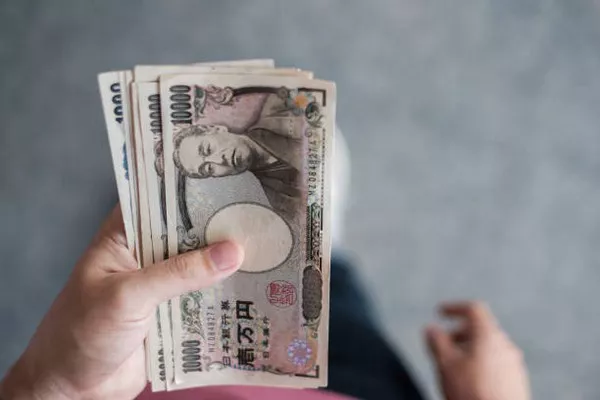As the world becomes increasingly interconnected, individuals and businesses engage in international transactions, requiring familiarity with various currencies. The Japanese yen, renowned for its stability and significance in global trade, is a currency that often attracts investors and travelers alike. In this article, we will explore the nuances of buying Japanese yen, shedding light on the factors influencing exchange rates, the mechanisms of the foreign exchange market, and essential considerations for those seeking to acquire this valuable currency.
Understanding the Forex Market:
The foreign exchange market, commonly known as Forex or FX, is the global marketplace where currencies are bought and sold. It operates 24 hours a day, five days a week, spanning major financial centers worldwide. Central to the Forex market is the exchange rate, the relative value of one currency compared to another.
Exchange Rates and Factors Influencing Them:
Exchange rates are influenced by a multitude of factors, including economic indicators, geopolitical events, interest rates, and market sentiment. Understanding these dynamics is crucial for anyone looking to buy Japanese yen or engage in currency trading.
Economic Indicators:
Economic indicators such as GDP growth, employment rates, and inflation play a significant role in determining a country’s economic health. Positive economic data can strengthen a currency, while negative indicators may lead to depreciation.
Interest Rates:
Central banks set interest rates, influencing borrowing costs and, consequently, currency values. Higher interest rates often attract foreign capital, strengthening a currency. Therefore, changes in interest rate policies by the Bank of Japan (BoJ) can impact the value of the yen.
Geopolitical Events:
Political stability and geopolitical events can have profound effects on exchange rates. Uncertainty or instability in Japan or major trading partners may lead to currency fluctuations.
The Mechanics of Buying Japanese Yen:
When it comes to purchasing Japanese yen, individuals have several options, each with its own advantages and considerations.
Currency Exchange Services:
Traditional currency exchange services, often found at airports, banks, or specialized exchange offices, allow individuals to physically exchange their home currency for Japanese yen. However, these services may charge fees or offer less favorable exchange rates.
Online Currency Platforms:
With the advent of online currency platforms, individuals can buy Japanese yen through digital channels. These platforms often provide competitive rates and lower fees, making them a convenient option for those seeking cost-effective and efficient currency exchange.
Forex Brokers:
Forex brokers facilitate currency trading for individuals and institutions. By opening a trading account, individuals can participate in the Forex market, speculating on the movement of currency pairs, including JPY/USD (Japanese yen/US dollar). It’s essential to choose a reputable broker with transparent fee structures and regulatory compliance.
Factors Affecting Exchange Rates Involving the Japanese Yen:
BoJ Monetary Policy:
The Bank of Japan’s monetary policy decisions, including interest rate adjustments and quantitative easing measures, can significantly impact the value of the yen. Traders closely monitor BoJ statements for signals regarding future policy directions.
Global Economic Trends:
Japan’s economy is closely tied to global economic trends. Changes in global demand for Japanese exports, particularly automobiles and technology, can influence the yen’s strength or weakness.
Trade Balances:
Japan’s trade balances, particularly its trade surplus or deficit, affect the demand for the yen. A surplus may lead to increased demand for the yen, while a deficit could weaken the currency.
Risk Management and Currency Exchange:
Hedging Strategies:
Businesses engaged in international trade often employ hedging strategies to mitigate the risks associated with currency fluctuations. Forward contracts, options, and futures contracts are common tools used to lock in exchange rates and protect against adverse currency movements.
Market Analysis:
Individuals looking to buy Japanese yen for investment purposes should conduct thorough market analysis. Technical and fundamental analysis can provide insights into potential price movements, helping investors make informed decisions.
Travel Considerations:
For those buying Japanese yen for travel purposes, planning is crucial to ensure a seamless and cost-effective experience.
Compare Exchange Rates:
Before exchanging currency, travelers should compare exchange rates offered by different providers. Online platforms often offer more favorable rates than physical exchange services.
ATM Withdrawals:
Using ATMs in Japan to withdraw yen is a convenient option for travelers. However, it’s essential to check with your bank regarding international transaction fees and notify them of your travel plans to avoid any disruptions.
See Also: What Is The Highest Yen Rate In History? [Revealed!]
Conclusion:
Buying Japanese yen involves navigating the intricacies of the foreign exchange market, understanding economic indicators, and making informed decisions based on a range of factors. Whether driven by investment goals, business transactions, or travel plans, individuals should be aware of the dynamics influencing exchange rates and choose the most suitable method for acquiring yen. As a currency with a storied history and a pivotal role in global finance, the Japanese yen continues to captivate the attention of those seeking to engage with the world of international currencies.


